Girl nicknamed ‘Fluffy’ is one of only 100 people with ‘uncombable hair syndrome’
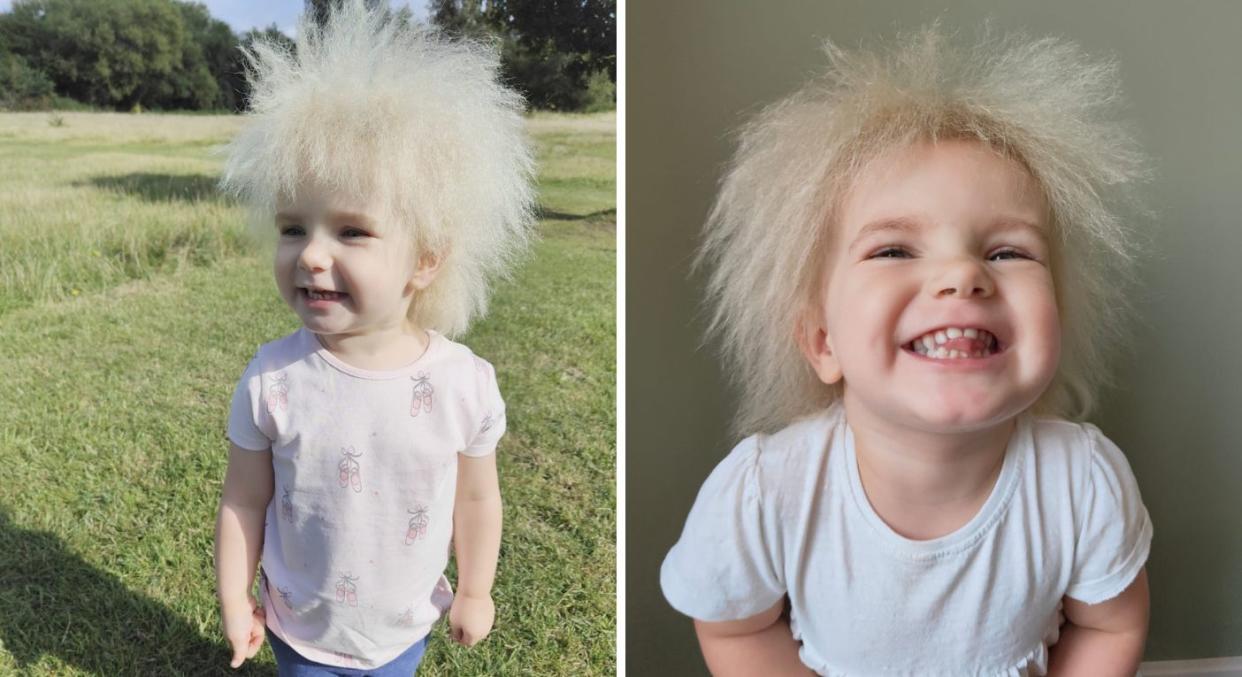
A little girl, who has been nicknamed "Fluffy" by her preschool pals due to her frizzy hair, is one of only 100 people in the world with 'uncombable hair syndrome' a rare condition, which leaves her hair impossible to brush.
Since she was a toddler Layla Davis has been attracting attention for her unusual blonde locks, which cannot be combed flat.
Now three, she has just started at nursery where her soft, sticky-up hair has led to her being nicknamed 'Fluffy.'
Layla has been diagnosed with uncombable hair syndrome (UHS) - a condition characterised by dry, frizzy hair which defies attempts to tame it.
UHS develops in childhood, often between infancy and age three but can appear as late as twelve.
Children who develop it tend to have light-coloured hair and there are only around 100 cases in the world.
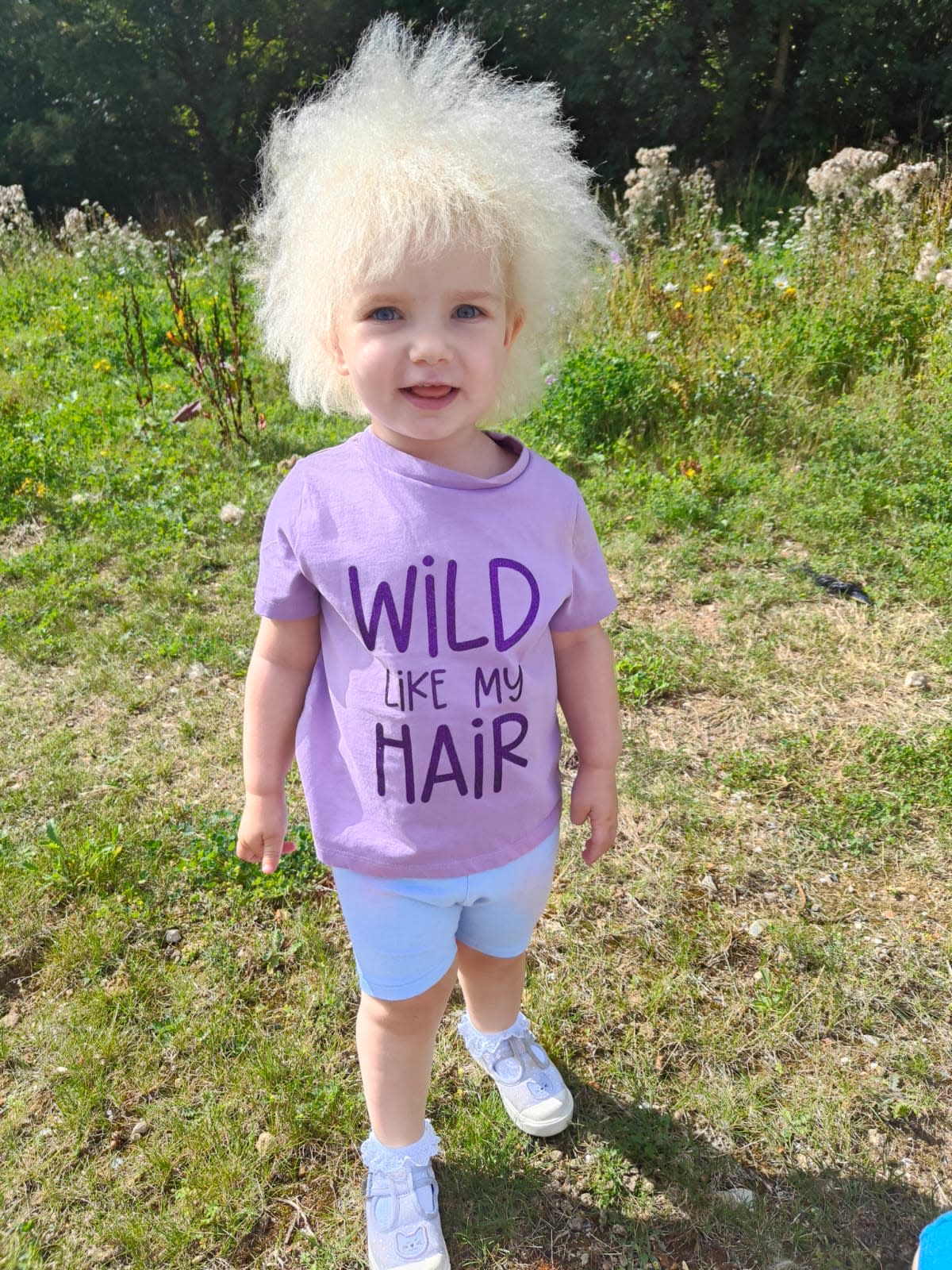
Layla's mum, Charlotte Davis, 30, says that while her daughter's hair has grown a little longer, it hasn't really changed in the past year.
"Her preschool friends call her 'Fluffy' because of her hair as there is another Layla in her class," she explains.
Charlotte says the other children are never negative about Layla's hair, which has a knock on impact on her daughter's confidence.
"She is a very happy girl - she’s not shy and talks to everyone," her mum explains.
Layla lives with her mum Charlotte, dad Kevin, 37, and brother Freddie four, in Great Blakenham, Suffolk.
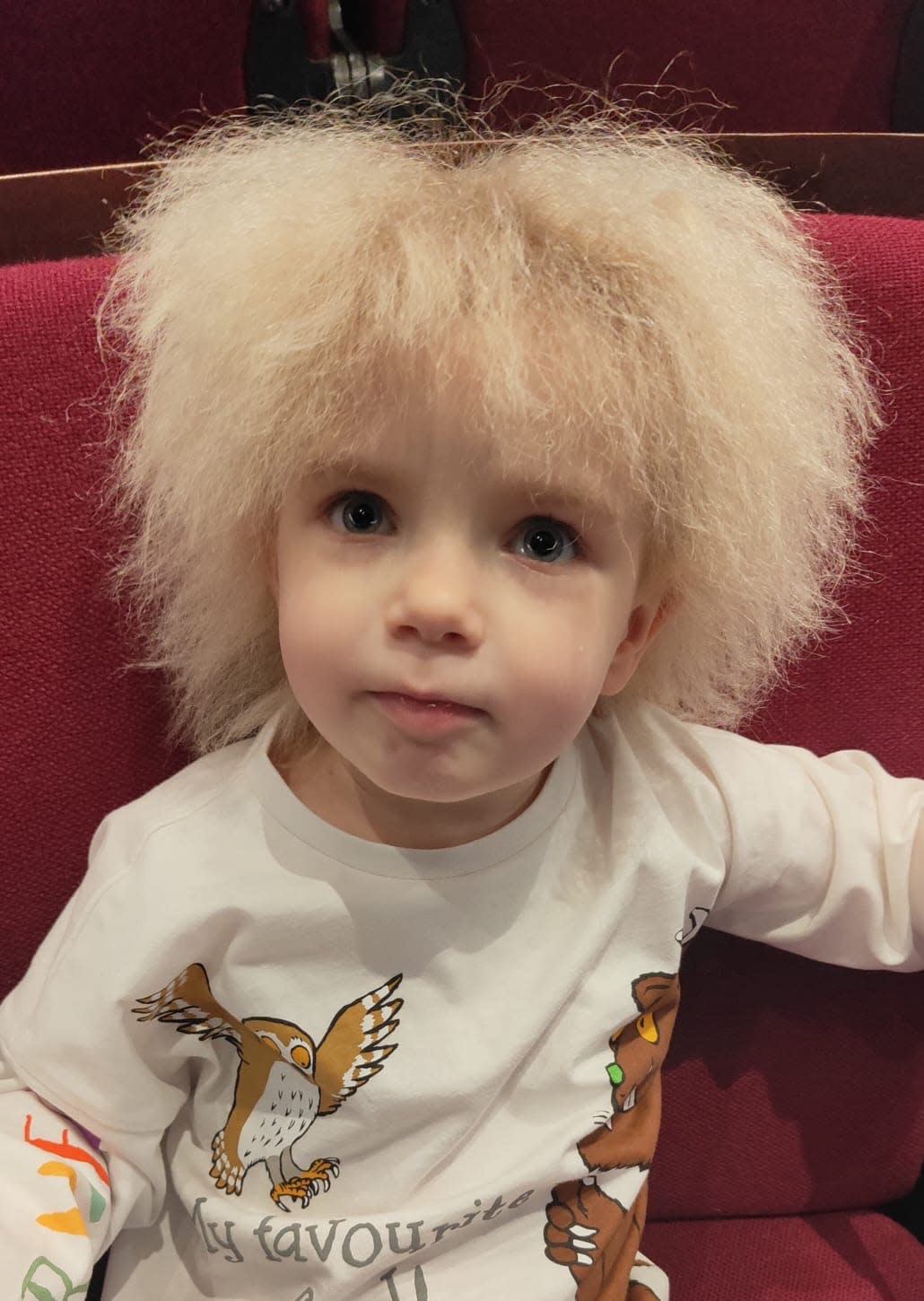
The hair condition is also known as spun glass hair and usually improves over time - normally by adolescence, but in the meantime they are looking after Layla's locks as best they can.
"She had her first hair cut in February last year but it's still wild," Charlotte says.
"We can plait it now but we don't do it too often as we don't want to pull it too hard - it's very fragile and can break off easily.
"She has got to the age where she is starting to question things a bit more now like she wants her hair plaited every day and asks why we can’t do it.
"I have to tell her her hair is a little bit different and we need to take care of it."
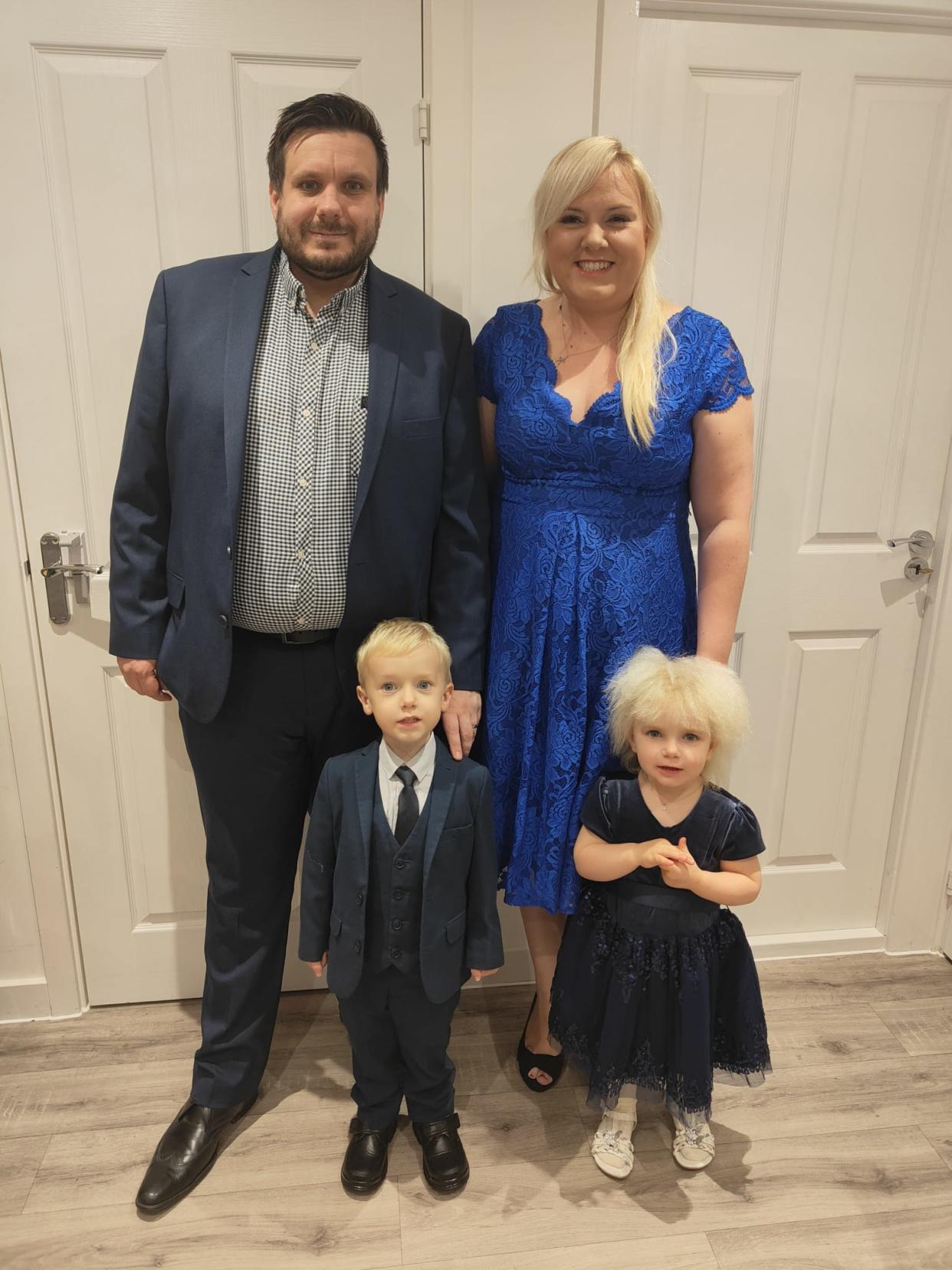
Charlotte says her daughter's hair has previously earned her nicknames like Boris Johnson and also Albert Einstein.
The family say is mainly adults who seem fascinated with Layla's unique hair and while it is mostly positive she has had a few instances where people have touched it without asking first.
"People seem to think it is okay to reach out and touch her," Charlotte explains. "I have to teach her about consent, but it's tricky for a three-year-old to understand why people might want to touch her hair.
"I also want to tell her it's not okay for people to touch her without asking but as she's only young I don't want to scare her.
"People never mean anything bad by it but they sometimes just reach out, wanting to feel it."
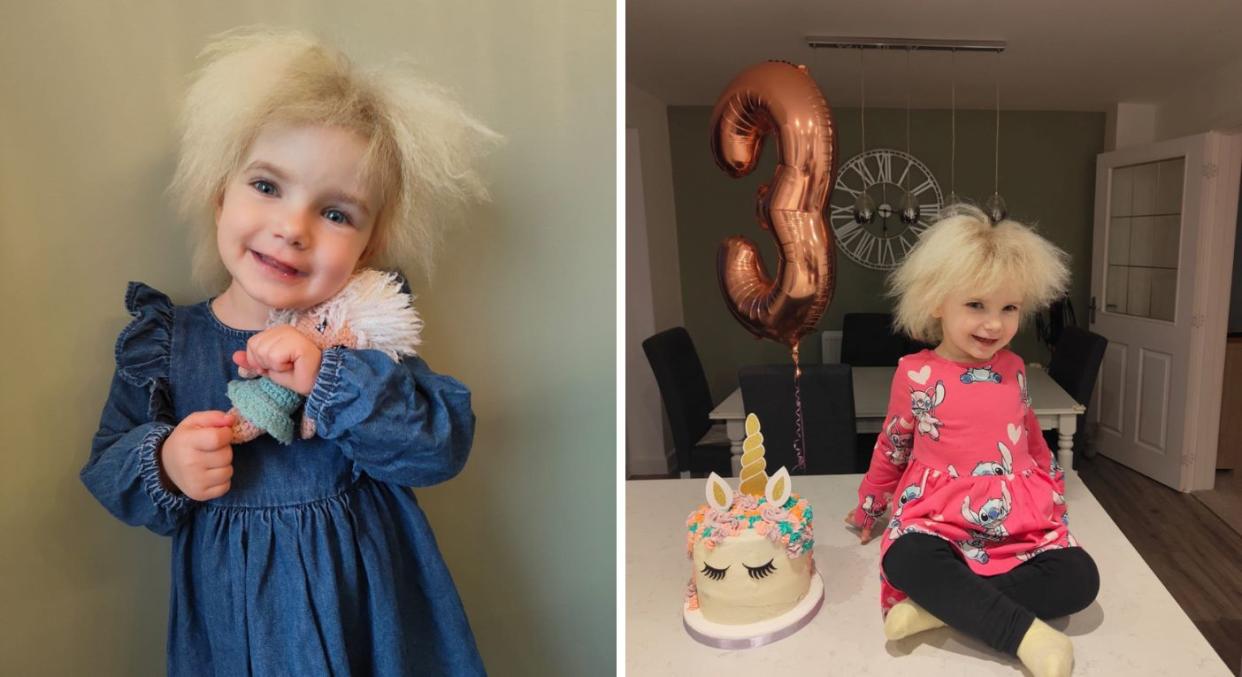
Despite some occasional, unwelcome attention, Charlotte said Layla is a happy-go-lucky little girl who loves singing and ballet dancing.
The family have set up an Instagram account for Layla and say the support they've received and been able to give has been amazing.
"We've had a lot of people message her from all over the world," her mum says of the response. "Because of Layla some others are now learning there is a name for their condition or that there is someone else out there with the same."
Charlotte wants her daughter to grow up knowing her hair is "cool" even though she looks different to other children her age.
"I hope her hair doesn’t change and it gets a bit longer so we can put it in a pony tail one day," she says.
"I just want her to love it as when she grows up kids will suddenly start to make comments.
"It's your job as a mum to equip your kids for any situation so I just hope she thinks its cool like I do."
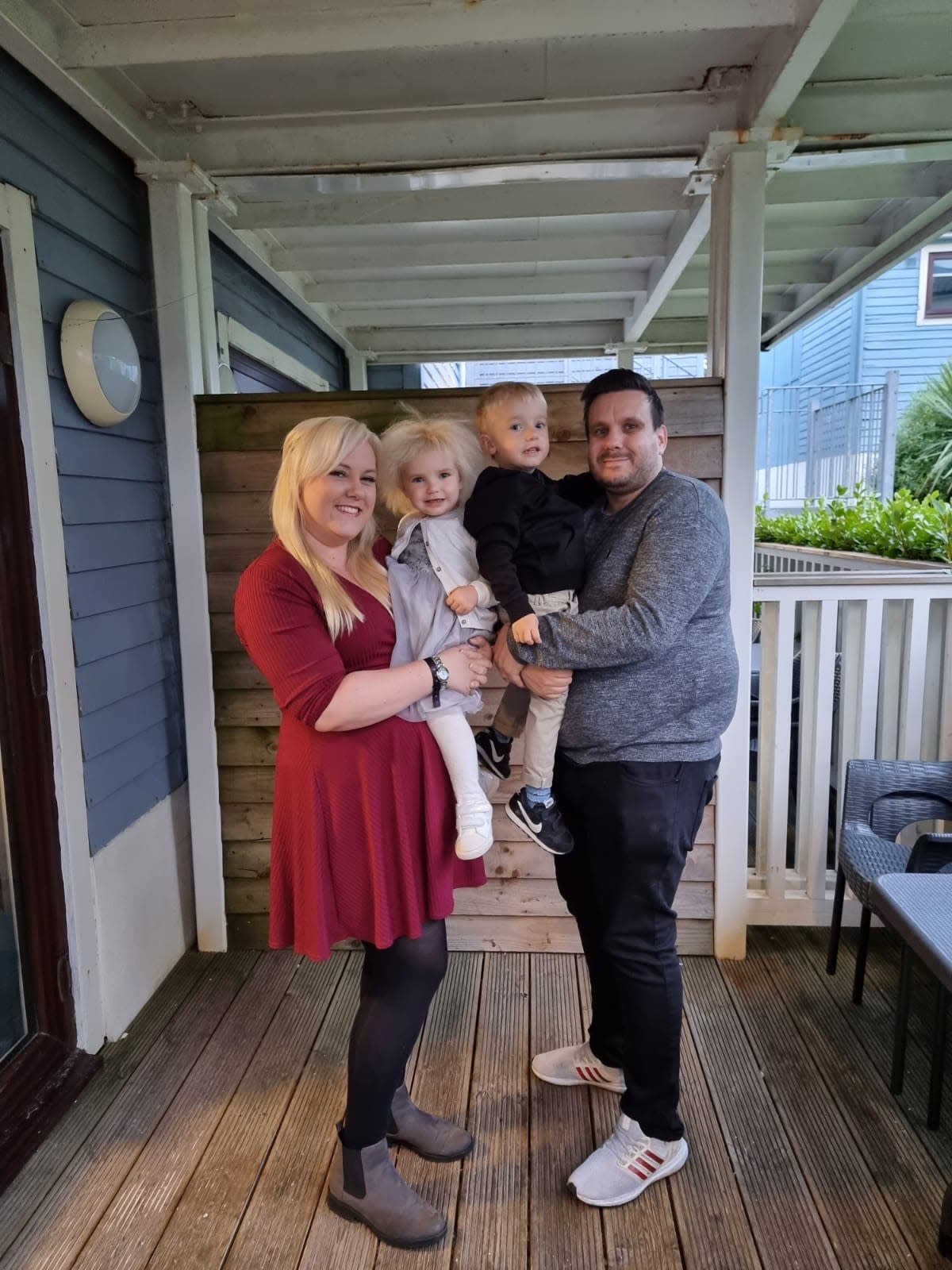
What is Uncombable hair syndrome?
According to the Genetic and Rare Diseases Center (GARD), Uncombable Hair Syndrome (UHS) is a rare disorder of the hair shaft of the scalp.
It has been found to be caused by mutations in three genes that are involved in hair shaft formation.
The condition is usually characterised by silvery-blond or straw-coloured hair that is disorderly; stands out from the scalp; and cannot be combed flat, with the signs typically becoming apparent from three months of age to 12.
There is no definitive treatment for uncombable hair syndrome, but the condition usually improves or resolves on its own with the onset of puberty.
In order to help manage the condition, the GARD suggests gentle hair care using conditioners and soft brushes, along with avoiding harsh hair treatments such as permanent waves (perms); chemical relaxants; or excessive brushing and blow drying.
People with concerns about symptoms of UHS are encouraged to speak with their GP or dermatologist about being evaluated for the condition.
Additional reporting SWNS.
Parenting: Read more
Dad shares how he delivered his baby on living room carpet (Yahoo Life UK, 4-min read)
Co-parenting with my best friend has been the happiest relationship of my life (Yahoo Life UK, 8-min read)
What I've learned from having my first child at 23 and my second at 40 (Yahoo Life UK, 9-min read)
Watch: 'My girls both needed their legs amputating - despite one-in-a-billion odds'


